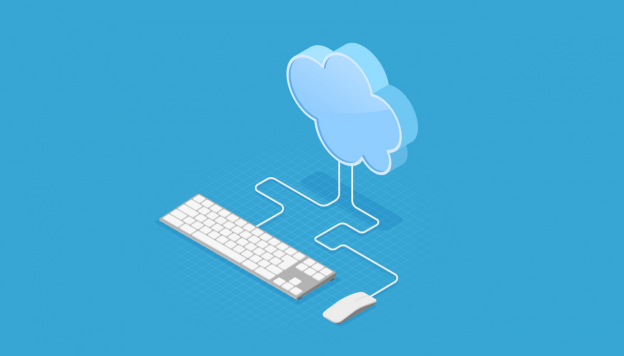Cloud computing can bring lots of benefits for your business. You can build a reliable and portable infrastructure with cloud services and increase the profitability of your business. Today we’ll talk about cloud migration, its benefits and features.
What is cloud computing?
Simply put, cloud computing is a model of on-demand delivery of different IT services via the cloud. you can use cloud computing for multiple tasks including data storing, testing, deployment, scaling, disaster recovery, etc.
There are three main types of cloud services:
- Software-as-a-Service (SaaS);
- Platform-as-a-Service (PaaS);
- Infrastructure-as-a-Service (IaaS).
Software-as-a-Service gives you access to necessary applications via a thin client. Thanks to the cloud you can have access from any device, you can run software from web or mobile application or from the browser.

Platform-as-a-Service is a model that gives the user access to the cloud platform. The most popular platforms are Google Cloud Platform, Amazon Web Services, Microsoft Azure. Such platforms usually have tools for development, testing and deployment software.
Infrastructure-as-a-Service allows you to use all necessary tools for creating a new infrastructure from scratch. In this case, you can control all services, virtual systems, operation systems, etc.
Cloud computing provides lots of services with different access and abilities for customization. Thus, you can choose the model and receive all the benefits.
Advantages of cloud services for business
- Customization. This is a very first benefit because the flexibility of cloud computing services allows you to make your own solutions combining different approaches and practices.
- Scalability. If you work with physical servers you can understand how hard can be scaling of your project because you need a lot of new hardware. Cloud computing makes scaling simple and understandable because you don’t need to buy a new server, you just rent a new place for your needs.
- Reducing costs. Cloud computing allows you to pay only for the services and platforms you use. In the case with scalability, you pay for a bigger volume when you use it and for smaller when you don’t need a lot of resources.
- Efficient collaboration. Cloud computing allows using services from any place and device, so you’ll receive more efficient collaboration between team, customer and users.
- Security. Cloud computing allows making backups that are more secure than physical storage.

How to implement cloud computing?
As you can see, cloud computing is more beneficial than physical servers and can save lots of money and other resources. The next question is how to implement cloud computing into your project?
The most efficient way is to hire a dedicated outsourcing team. Such teams have deep expertise and can use turnkey or customizable solutions for your business. Also, you can use services from cloud providers but it’s risky because of vendor lock-in. If you want to change the platform, you might have a lot of difficulties. Unlike outsourcing, the team will pick for you only necessary services and avoid vendor lock-in.
To find a reliable dedicated team, refer to the Managed Service Provider (MSP). Such companies provide different teams, expertise and services. Try to look for reviews from previous customers, ratings and awards. Also, you can discuss with MSP details of cloud migration and strategy of future collaboration. Thus, you’ll have a reliable contractor and best practices for your business.
